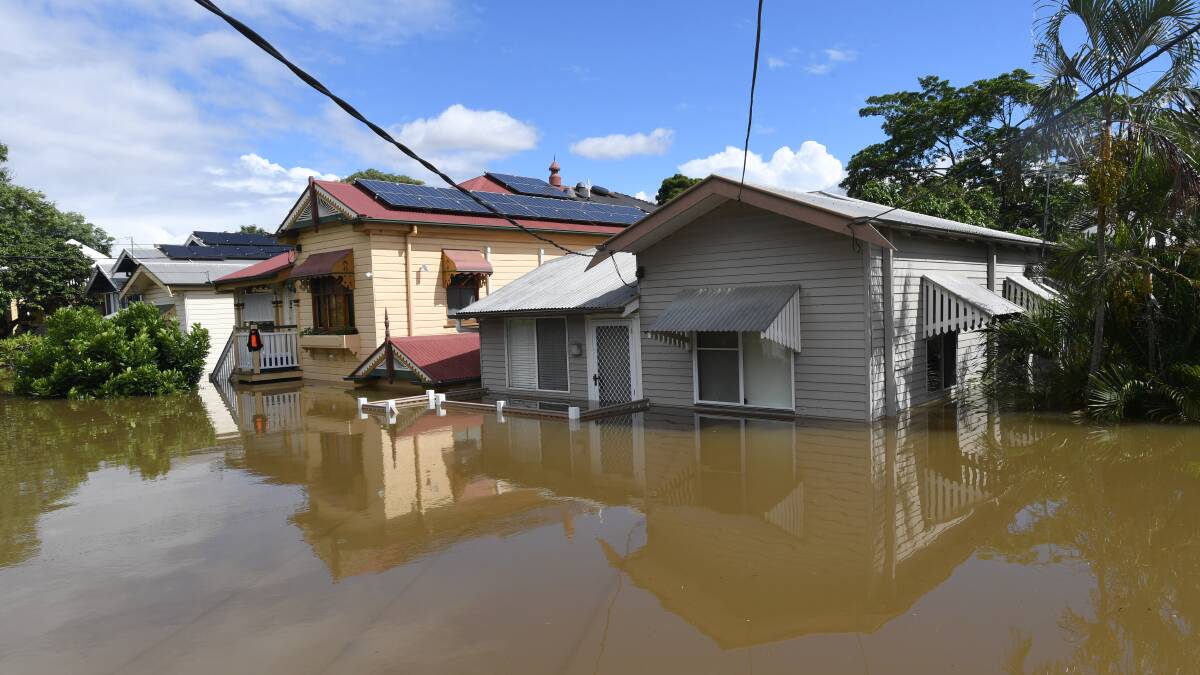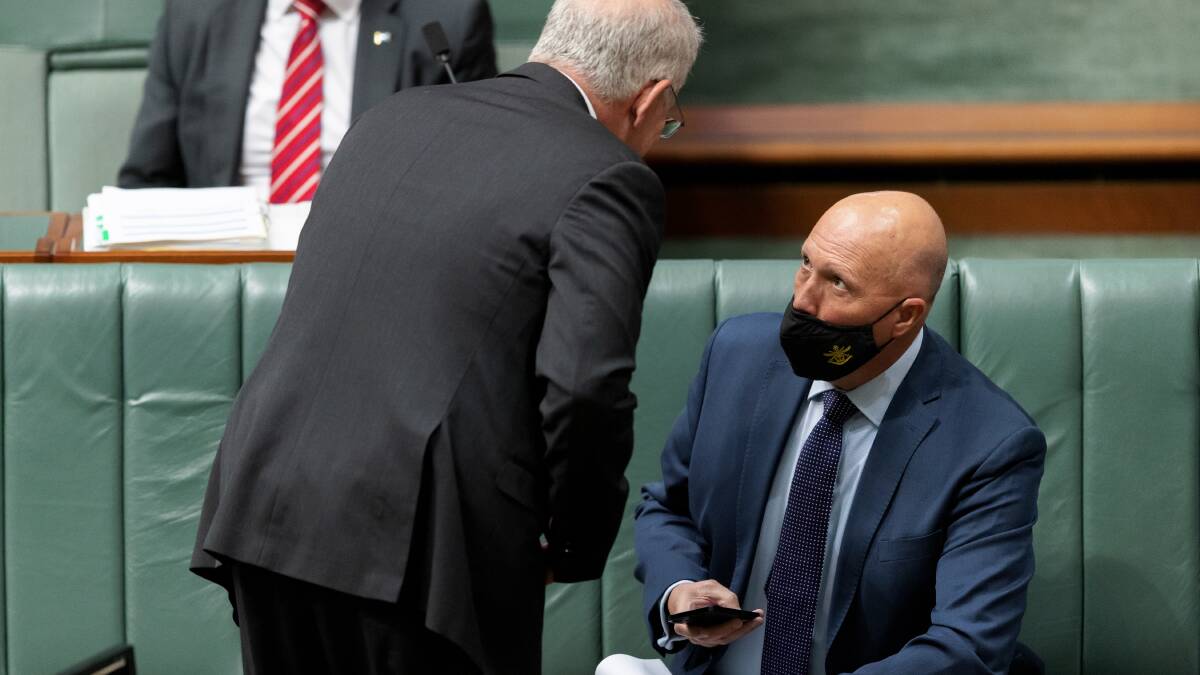
It is nearly inconceivable to me that I finally have something purposeful and genuine in common with Peter Dutton.
Please don't cancel me now.
On Sunday, he started a GoFundMe to support his electorate after floods tore through his community.
He tweeted: "The water hasn't gone down yet, and we haven't seen the full extent of the damage to our community due to catastrophic flooding. We have started a fundraiser to help local residents and businesses who have been affected."
Same here! I mean, I'm not a federal cabinet minister with access to the most powerful levers of government funding (as well as the even more powerful levers of mitigating climate change, which we can blame for these floods), but I too started a GoFundMe this week.
My darling friend Naomi, like so many others Gen Xers, decided to do a Great Realignment at the end of 2021. She'd toiled in the union movement for most of her working life, but had a secret ambition to be a cake maker to the stars of Lismore and surrounds (as an inhaler of her pre-professional efforts, I knew this would be a success). So she tossed in her regular job with regular income and started making fantasy creations.
Now both her home and her new business are under water. I'm several hundred kilometres away and am truly terrible at clean-ups, so how can I help? What else can we do but give money when we are nowhere near the flood-affected areas?
Let me introduce you to Nicole George, an associate professor at the University of Queensland's School of Political Science and International Studies. Yes, she's all the academic goodness, but she is also a survivor of flooded Brisbane, 2011. After that abated, George researched community responses to the disaster.
She says some of the actions people took during those 2011 floods in Queensland actually harmed the recipients.
"Cleaning out your junk is not charity," she says.
What she means is that during those times, she received what people were about to throw out. Rotting food. Clothes on their last legs. The leftovers. The throwaways.
"It's humiliating for the people who receive it. It was humiliating for me. I couldn't really understand it. Was this how people viewed me?"
If it's not good enough for you, pop it in the bin.
George says money gives disaster victims more agency, but she says "give it to the big established funds". Hmm. I didn't do this for Naomi, because of countless stories of people who could never get access to those public funds - but I totally get what George means.
So what does this expert on disaster resilience think about Peter Dutton's decision to crowdfund?

She did not provide a ringing endorsement. Her view is that when we elect politicians, we do it so they will represent the needs of citizens to government.
"I hope that Peter Dutton and his staff are doing just that, representing their constituents," she says. That means taking the available information known to government departments and initiating a policy response.
Like providing actual appropriate government funding for disaster relief. Just a gentle reminder that there is an entire cache of unspent money (about $4 billion) in the Emergency Response Fund, so I don't feel 100 per cent confident this government understands - or even wants to - support our bereft communities. A teeny-tiny amount has been allocated, but there are folks in bushfire-affected areas still living in caravans. And let's not forget that disaster resilence should include building telecommunications infrastructure which can deal with anything.
When I called Naomi, who'd been rescued after spending three hours on her roof in the freezing rain, it was nearly impossible to get through. Even when I called the evacuation centres, the weather had knocked out reception. This can't be the way we go forward in a country which has a natural disaster emergency every year. We need a much better response from all levels of governments (although I'd like to give a special shout-out to local councils, who have worked tirelessly. Some of the mayors I'm hearing on local radio sound utterly exhausted).
READ MORE:
Michael de Percy, a telecommunications infrastructure expert at the University of Canberra, explains that because the constitution gives exclusive powers to Parliament to legislate on "postal, telegraphic, telephonic, and other like services", it then becomes difficult for other players to fill the gaps. In Canada, he says, municipal councils provide those services. It mightn't be quite the quality of what you get in urban centres, but it is better than nothing. Which is what so many victims of natural disasters have in the days following the catastrophes.
"If we have diversity of services, then we can have multiple technologies. It is the single national solution that stuffs it up now," de Percy says.
That's really a call for the federal government to do better - and to do it more quickly than it did with the bushfires. We can't have so many Australians waiting for help.
And here's what George says we can do if we are close to the disaster: don't rock up asking how you can help. Have a few ideas? Cooking? Cleaning? Ask if your ideas would be useful. Don't add to the cognitive and emotional labour, which in the midst of chaos is already overloaded.
One other thing. I've written about the vetoing of grants by unqualified ministers. Humanities grants were hit hard, considered to be irrelevant to the national interest.
Nicole George again: "My phone has been running hot the last two days with media people wanting to hear about my research, put it in a broader framework.That's what humanities people do well. We explain the socal impact of these events."
That might be the kind of explanation our government really needs to hear. I'm happy to explain why it's OK for me to start a GoFundMe but not Mr Dutton.
- Jenna Price is a regular columnist and a visiting fellow at the Australian National University.


